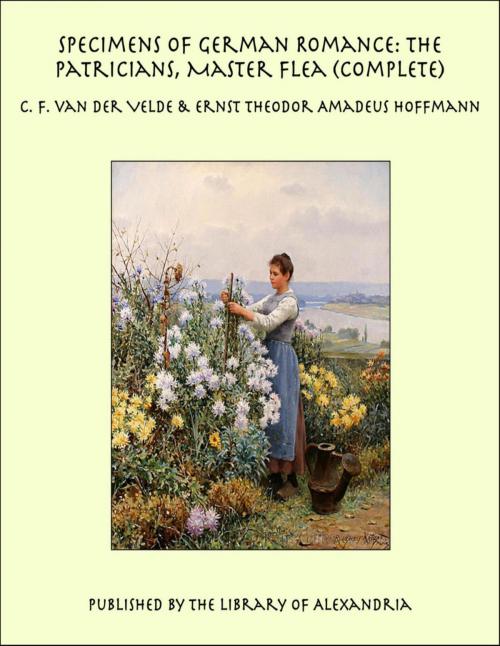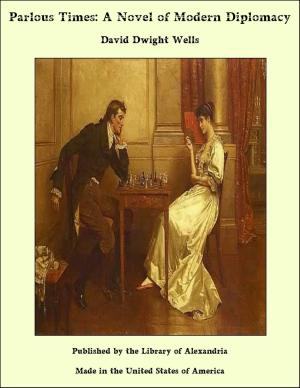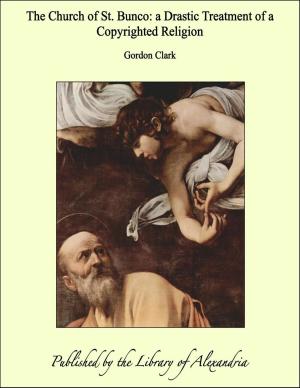Specimens of German Romance: The Patricians, Master Flea (Complete)
Nonfiction, Religion & Spirituality, New Age, History, Fiction & Literature| Author: | C. F. van der Velde | ISBN: | 9781465549242 |
| Publisher: | Library of Alexandria | Publication: | March 8, 2015 |
| Imprint: | Language: | English |
| Author: | C. F. van der Velde |
| ISBN: | 9781465549242 |
| Publisher: | Library of Alexandria |
| Publication: | March 8, 2015 |
| Imprint: | |
| Language: | English |
THE PATRICIANS. It was in the year 1568, on the 17th of May, old style, that Althea, the widow of Netz of Bogendorf, sate in her apartments at Schweidnitz. The mourning veil still flowed about her pale beautiful face, while her blue eyes gazed through their tears with melancholy tenderness on the only pledge of a brief yet happy union, the four years' old Henry, who sate upon her knees, and in childish sport was trying to pull the golden locks of his mother from under her widows' cap. Before her stood her old uncle, Seifried von Schindel, and, while he held the full goblet in his hand, exhausted himself in consolations to lessen the anguish of his beloved niece. With good-humoured rebuke he exclaimed, "It is, no doubt, praise-worthy in your zeal to grieve for the loss of your husband; I myself can't bear those widows, who, like green wood, weep at one end, and burn at the other; but even good may be carried to excess, and this utter surrender of yourself to grief is as contrary to reason as it is to the word of God." "How can I help it?" said Althea, with calm; and patient sorrow: "How can I help it, when all that surrounds me is an inexhaustible source of tears? Do I see my husband's sword hanging against the wall, I must weep--do I hear his war-horse neighing in the stable, I must weep--does my sight fall upon this fatherless child alas!"--tears stifled her words. "A child who will soon be motherless too," exclaimed her uncle, "if you go on thus destroying your health by such unchristian want of fortitude. Every thing has its season; your year of widowhood is past, and as you are no longer entitled to wear black, so your mind too must cast off the mourning in which it has been too closely enveloped, and you must begin again to live for the world, to which, after all, you belong. If you were a papist, you might bury your grief in a cloister, for ought I should care; but that won't do now; and, besides, you have important and sacred duties upon you. The property that you have to preserve for the son of a beloved husband requires a stout protector in these stormy times. A woman's bringing up, too, will not be sufficient for him, and you'll not like to let him go from you so soon; therefore you must give him a father who, with all love and earnestness, will make an honourable knight out of him. In a word, you must marry again
THE PATRICIANS. It was in the year 1568, on the 17th of May, old style, that Althea, the widow of Netz of Bogendorf, sate in her apartments at Schweidnitz. The mourning veil still flowed about her pale beautiful face, while her blue eyes gazed through their tears with melancholy tenderness on the only pledge of a brief yet happy union, the four years' old Henry, who sate upon her knees, and in childish sport was trying to pull the golden locks of his mother from under her widows' cap. Before her stood her old uncle, Seifried von Schindel, and, while he held the full goblet in his hand, exhausted himself in consolations to lessen the anguish of his beloved niece. With good-humoured rebuke he exclaimed, "It is, no doubt, praise-worthy in your zeal to grieve for the loss of your husband; I myself can't bear those widows, who, like green wood, weep at one end, and burn at the other; but even good may be carried to excess, and this utter surrender of yourself to grief is as contrary to reason as it is to the word of God." "How can I help it?" said Althea, with calm; and patient sorrow: "How can I help it, when all that surrounds me is an inexhaustible source of tears? Do I see my husband's sword hanging against the wall, I must weep--do I hear his war-horse neighing in the stable, I must weep--does my sight fall upon this fatherless child alas!"--tears stifled her words. "A child who will soon be motherless too," exclaimed her uncle, "if you go on thus destroying your health by such unchristian want of fortitude. Every thing has its season; your year of widowhood is past, and as you are no longer entitled to wear black, so your mind too must cast off the mourning in which it has been too closely enveloped, and you must begin again to live for the world, to which, after all, you belong. If you were a papist, you might bury your grief in a cloister, for ought I should care; but that won't do now; and, besides, you have important and sacred duties upon you. The property that you have to preserve for the son of a beloved husband requires a stout protector in these stormy times. A woman's bringing up, too, will not be sufficient for him, and you'll not like to let him go from you so soon; therefore you must give him a father who, with all love and earnestness, will make an honourable knight out of him. In a word, you must marry again















